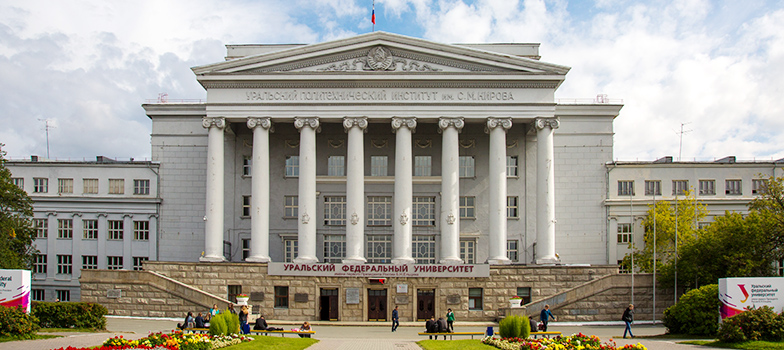Ural Federal University Scientists – ‘Bacteria Can Help Plants Remove Copper From Soil’
Scientists from the Ural Federal University, together with colleagues from India, have isolated metal-resistant microorganisms that are suitable for creating a biological product that helps to remove copper from soils. The bacteria stimulate the growth of sunflower plants and contribute to the accumulation of metal in the roots – the concentration of copper in the soil is reduced.
The article was published in the Chemosphere magazine.
Excess of copper (Cu) in the soil is the result of mining and processing of minerals, as well as the emission of municipal waste, exhaust gases from cars, and the use of chemical fertilizers, fungicides and pesticides. Although many farms today prefer organic fertilizers, the latter can also contain a fair amount of copper ions. On the one hand, it is necessary for the normal growth and development of plants, on the other hand, in excess amounts, this heavy metal is a serious toxicant that has an adverse effect on living organisms. The accumulation of copper in the environment leads to deterioration of agricultural soils and increases environmental risks.
Biologists of UrFU, together with colleagues from the University of Bharatiara, have shown that plant growth promoting (PGP) bacteria, with resistance to metals, will help to reclaim lands contaminated with heavy metals, including copper. Bacteria that are able to colonize the internal tissues of a plant without causing disease or developmental abnormalities are called endophytes. These microorganisms can produce phytohormones, fix atmospheric nitrogen, and increase plant resistance to pests and diseases. Two very important characteristics of PGP endophytes are the ability to synthesize indolyl-3-acetic acid (growth hormone) and to solubilize phosphates (making insoluble forms available). These compounds contribute to an increase in both aboveground and underground plant biomass.
Scientists have shown that microorganisms isolated from the rhizosphere (a thin layer of soil adjacent to the roots) beetroot, growing near a copper smelter, are highly resistant to metals, drought and are capable of stimulating plant growth. Of the 24 isolated isolates, the Pseudomonas lurida EOO26 strain, identified by 16s rRNA genome sequencing, was selected to further test its effectiveness in recovering copper-contaminated soils.
Experiments on growing sunflower (ultra-early ripening variety “Yenisei”) in soil contaminated with copper (100 mg / kg soil) showed a significant increase in the length and biomass of roots and shoots of plants after their colonization with the EOO26 strain. Sunflower “infected” with PGP endophytes accumulated 8.6 times more Cu in the roots and 1.9 times more in the leaves, and in general, the total copper absorption was almost three times higher than in the “uninfected” plants.
Significant areas of agricultural land both in Russia and in India not only contain a noticeable amount of toxic heavy metals and metalloids, but are also characterized by a low content of nutrients necessary for the normal growth and development of plants, such as nitrogen, phosphorus, potassium and others. In this study, biologists propose the following way to solve the problem: the use of biofertilizers based on biochar (a super-porous material that serves as a habitat for microorganisms) and metal-tolerant drought-resistant bacteria, such as Pseudomonas lurida EOO26. This will make it possible not only to increase soil productivity and stimulate plant growth, but also to avoid the influence of drought and high temperatures on crops. Research by Russian and Indian scientists was supported by a grant from the Russian Foundation for Basic Research and the Department of Science and Technology of the Government of India (project No. 19-516-45006).
“These bacteria have the potential to ensure the safety of food and agricultural land in the future. They demonstrate excellent adaptive abilities and high efficiency in removing metals from contaminated soils, ”sums up the head of the grant, Dr. Tripti, an employee of the laboratory of biotechnology at the Institute of Natural Sciences and Mathematics of the Ural Federal University.

